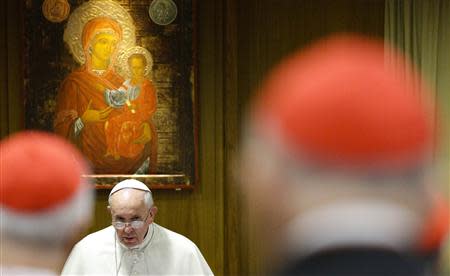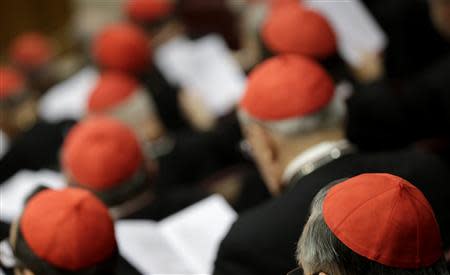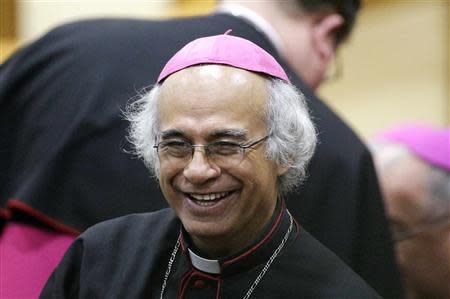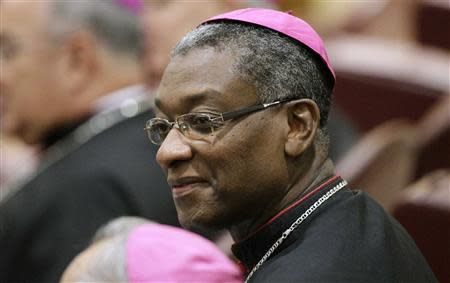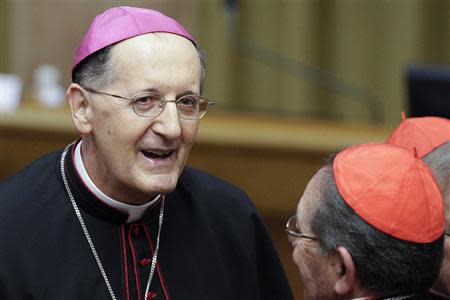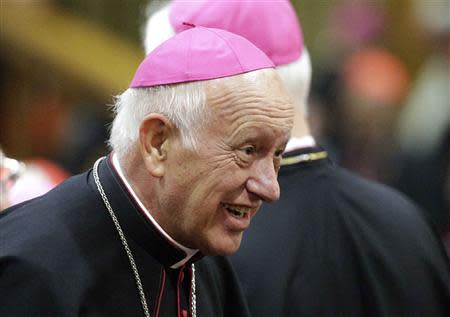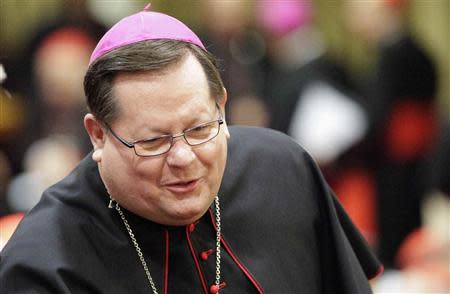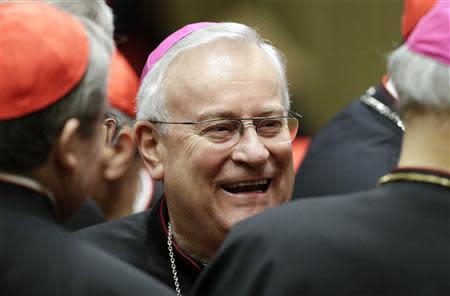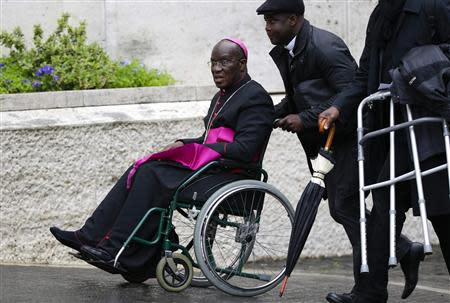Pope tells cardinals to tackle divisive family issues with courage
By Philip Pullella VATICAN CITY (Reuters) - Pope Francis on Thursday urged cardinals gathered to discuss family-related issues such as contraception, cohabitation, divorce and gay relationships to be "intelligent, courageous and loving" in their debate. He was opening two days of closed-door sessions with some 185 cardinals from around the world to prepare for an autumn synod of bishops that will discuss the issues at greater length. "We are called to make known God's magnificent plan for the family and to help spouses joyfully experience this plan in their lives, as we accompany them amidst so many difficulties, even with a pastoral plan that is intelligent, courageous and full of love," Francis told the cardinals. While there is no possibility that the Church will change its teachings against abortion and gay marriage, many Catholics hope that the autumn synod could lead to modifications of its stance on other family-related issues For example, Catholics who have divorced and remarried outside the Church without an annulment are now barred from receiving communion. The meeting is being held in the wake of a worldwide survey of Catholics - an unusually open move for a traditionally top-down institution - that is showing a deep divide between Church officials and the faithful on issues of sexual morality. Significantly, the pope chose German Cardinal Walter Kasper, who clashed with former Pope Benedict over theological issues and who is a leading proponent of reaching out to the remarried, to give the keynote address. CHURCH NOT A DEMOCRACY Kasper told the assembly that the autumn synod would have to try to remain "faithful to the word of Jesus (regarding the indissolubility of marriage) while showing God's mercy" to Catholics in such predicaments. A growing number of Church officials believe the communion ban should be lifted in order to welcome remarried Catholics back into full participation in the 1.2 billion-member Church, particularly those in situations such as where an abandoned spouse remarries outside the Church. Kasper later told reporters that the pope had "opened a dialogue" but that he did not expect fundamental changes to doctrine. "The Church is not a democracy, it is the fruit of a synod-run process which is a different thing from democracy. In the end, the pope is the one who decides, that is clear," he said. In his address, Francis said the Church leaders should "seek to deepen the theology of the family and discern the pastoral practices which our present situation requires". In preparation for the autumn synod, the Vatican asked local churches to survey their faithful about teachings on sexual morality related to the family. Bishops in some countries, including Britain, opted not to publish their findings, but those published by German, Swiss and Japanese bishops showed that many people did not know Church teachings fully or rejected them as unrealistic and heartless. They showed that most Catholics in those countries disputed bans on contraception, premarital or gay sex and criticized the rules regarding divorced Catholics. Addressing the gathering of cardinals, Francis called the family the "fundamental cell of society" and indirectly re-stated the Catholic Church's opposition to gay marriage. "From the beginning the Creator blessed man and woman so that they might be fruitful and multiply," he said, calling the family an image of "God in the world". (Additional reporting by Antonio Denti; Editing by Jon Boyle)

